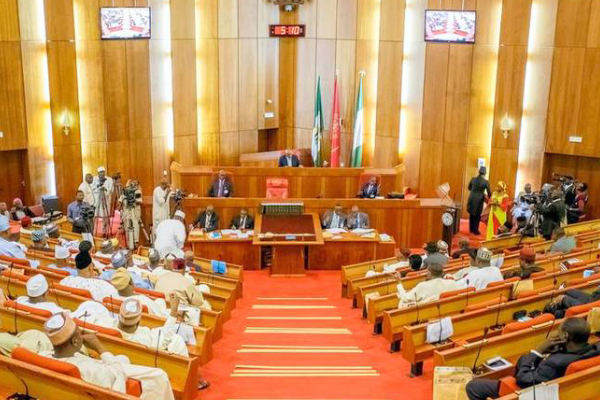The Senate has approved and passed N819.5 Billion as supplementary budget for the year 2022.
The passage comes a week after President Muhammadu Buhari’s letter to the National Assembly, seeking approval for the additional budget for 2022.
The total amount in the Supplementary Budget is for Capital expenditure intended to mitigate the effects of flooding especially as it concerns Government water and Infrastructure Projects destroyed by flood waters .
A breakdown of the allocation:
Agriculture – N69 billion.
Works – N704 billion.
FCTA – N30 billion.
Water Resources – N15.5 billion.
The 2022 Supplementary Budget is to be funded through domestic borrowing raising budget deficit to 8.17 trillion Naira and GDP ratio to 4.43%.
SENATE EXTENDS 2022 BUDGET IMPLEMENTATION WINDOW
The Senate has also extended the implementation of the 2022 capital budget till March 31, 2023.
This followed the consideration and passage of a “bill for an Act to amend the 2022 Appropriation Act in order to extend the implementation year from 31st December 2022 to 31st March 2023 and for related matters, 2022.”
The Senate, however, suspended its standing order 70 to enable it to read the Bill for the first, second and third time before its passage.
The Executive Bill was sponsored by the Senate Leader, Ibrahim Gobir.
He said it became necessary to extend the implementation of the capital appropriation for 2022 in order to allow for the completion of ongoing projects.
Gobir said the development followed a delay in the release of funds for the implementation of the capital component of the 2022 budget.
The Senate has also as part of plenary approved the 2022 Finance Bill which will guide financial and capital expenditure of the Federal Government.
The approval is expected to guide government spending in the early part of the 2023 since it will ensure that the Federal Government can continue to make Capital Investment in the Economy.





